Partecipanti
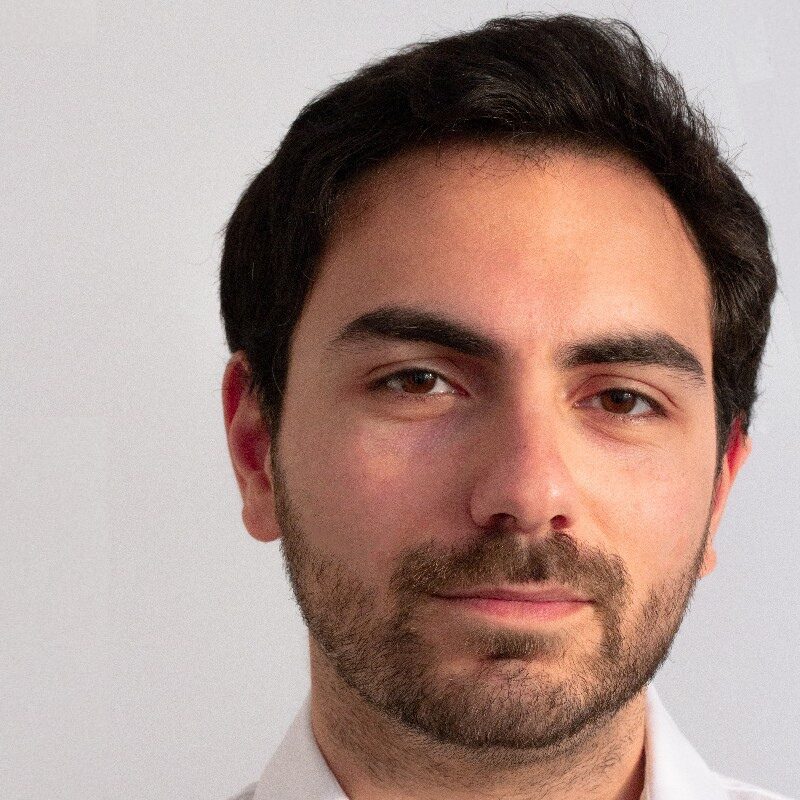
Giuseppe Zoppo
ITALY

Giuseppe Zoppo
ITALY
Giuseppe Zoppo is a multilingual professional with experience in European projects and
international cooperation in cultural heritage. He works at the Institute for Heritage
Science of the Italian National Research Council (CNR-ISPC), focusing on initiatives that
support cross-border collaboration in heritage science at the European level such as the
European Research Infrastructure for Heritage Science (E-RIHS), the Italian-French
Bilateral Cooperation on Heritage Science, the Alliance for Research on Cultural
Heritage in Europe (ARCHE) and the European Cloud for Heritage OpEn Science
(ECHOES). With an academic background in international management of cultural
heritage acquired through an Erasmus Mundus Joint Master’s Degree, he contributes to
fostering scientific dialogue and integrating heritage science into the international
community of science diplomacy.
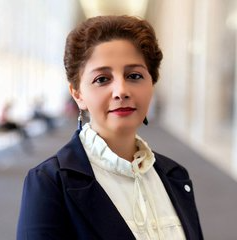
dr. Encieh Erfani
IRAN

dr. Encieh Erfani
IRAN
Dr. Encieh Erfani is a researcher currently at Mainz University, Germany. Previously, she held the position of Assistant Professor in Iran from December 2015 until her resignation in September 2022, in solidarity with protests in Iran. Since then, she has been an exiled scholar. She obtained her Ph.D. from Bonn University, Germany (2012). Her research area is theoretical physics with a concentration on cosmology. She was a visiting researcher at ICTP-SAIFR, Brazil, and UNAM, Mexico under the TWAS fellowship, and a postdoctoral fellow at the IPM, Iran.
She is a fellow of the International Science Council, the advisory board of the IAP (InterAcademy Partnership), and the founder of the International Community of Iranian Academics. She was a Junior Associate of the ICTP, Italy, a TWAS Young Affiliate member, co-lead of the Science in Exile initiative, and an executive committee member of the Global Young Academy (2021-2023). She was on the board of directors of the Astronomy Society of Iran and the founder of its female branch.
She has extensive scientific outreach and public engagement experience and is passionate about teaching, science diplomacy, science communication, and academic freedom. More information is available on her homepage.
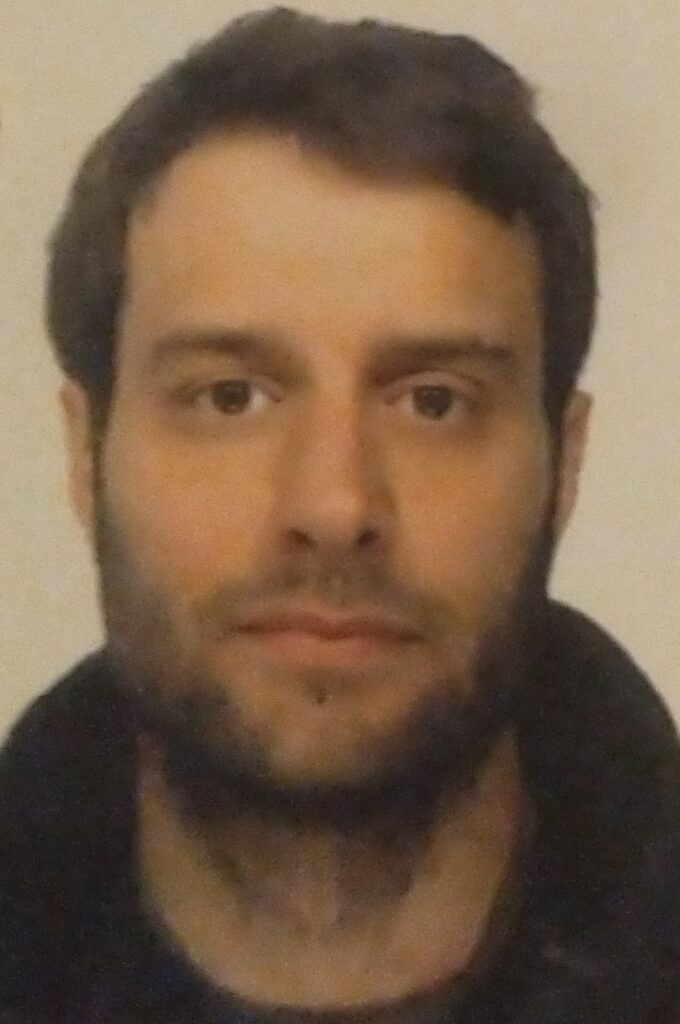
dr. Federico Dogo
ITALY

dr. Federico Dogo
ITALY
After a bachelor's degree in astronomy (planetary atmospheres), a master's degree in astronomy (theoretical cosmology) and a PhD in physics (radio-biophysics of tumours), I worked as a project manager and researcher in a university spin-off company in the space sector. In the meanwhile, I studied a second bachelor's degree in philosophy, internatinal studies and economics (PPE) and then a master's degree in philosophy of science. Since 2022, I am physics lecturer and researcher at university, where I am a delegate for international cooperation (parteciparing in some educational projects in African countries), with a determined interest in promoting and being involved in science diplomacy.
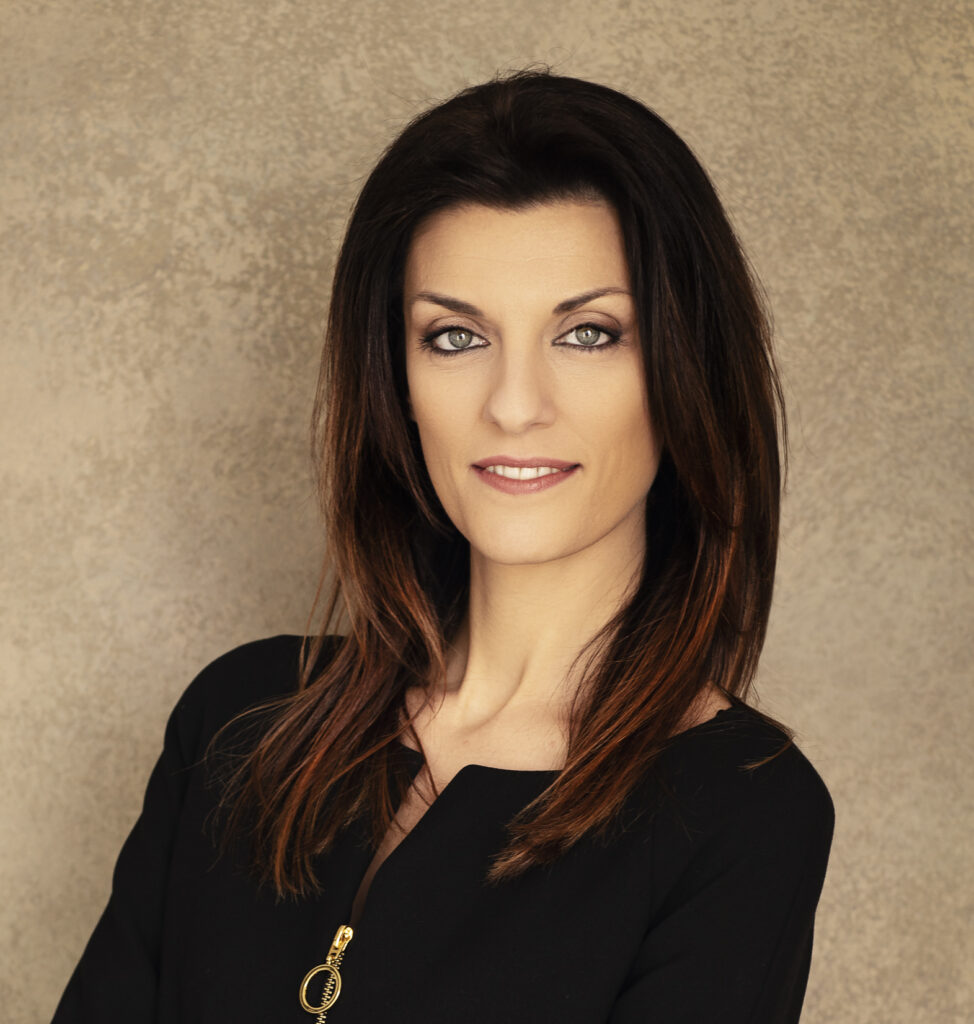
dr. Francesca de Rosa
ITALY

dr. Francesca de Rosa
ITALY
Francesca de Rosa is the Chief Scientist at the Center for Advanced Preparedness and Threat Response Simulation (CAPTRS). Previously, she spent twelve years at the NATO Centre for Maritime Research and Experimentation. She focuses on enhancing decision-making in complex sociotechnical systems. Her innovative transdisciplinary work integrates techniques from cognitive engineering, knowledge engineering, human-system integration, operational analysis and game science.
Francesca holds a PhD in Artificial Intelligence, specializing in Interactive and Cognitive Environments, and has served as an adjunct professor in Computer Games and Simulations at the University of Genova. Since 2021, she has been a board member of the Serious Game Society and is involved with the annual GAme & Learning Alliance (GALA) conference and the Wargaming Initiative for NATO (WIN). Additionally, she is a member of the Center for Pandemic Decision Science at the University of Texas - Austin.
With extensive experience advising national, international, and non-profit organizations, her recent collaborations include the Defence Innovation Office of the Italian Ministry of Defence, NATO Science and Technology Organization, European Research Executive Agency, U.S. Centers for Disease Control and Prevention, UN World Health Organization (WHO), UK Science and Innovation Network, and the Rockefeller Foundation.
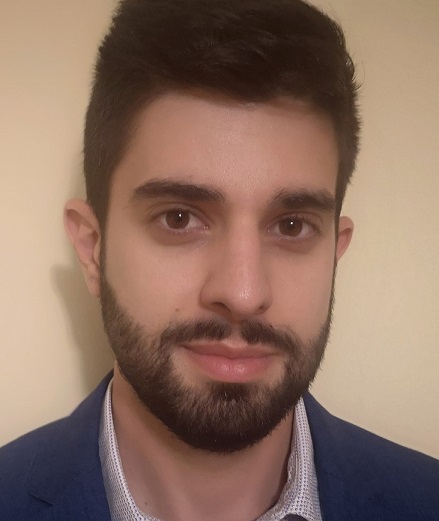
Adriano Pantaleo
ITALY

Adriano Pantaleo
ITALY
Adriano Pantaleo, learning architect and gamification designer for serious games. He was trained as a military officer in his 20', he obtained several educational degrees in Security & Defense, Languages Mediation for International Relations and Metacognition for Didactic Success. Now he is ending a Ph.D in Learning and Innovation for Social and Labour Contexts with the University of Siena developing games in collaboration with the Center for Advanced Defense Studies.
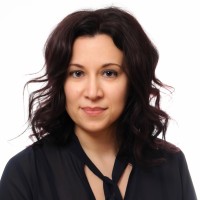
Caterina Monni
ITALY

Caterina Monni
ITALY
Born on November 21, 1975, I began my career in the tourism sector, accumulating over two decades of experience traveling through numerous non-European countries, particularly in the Middle East and Far East. My academic background is diverse, with a Bachelor's degree in Middle Eastern Languages and Civilizations, a Master's degree in International Politics and Diplomacy, a second-level Master's in Strategic Studies and International Security, and an international Master's in Arctic Studies.
Currently, I am in the first year of my PhD program in Polar Sciences at Ca' Foscari University of Venice, focusing on the Russian nuclear presence in the Arctic. My diverse background and openness to new disciplines have shaped my analytical and forward-thinking approach. My studies in the Navy enhanced my analytical skills, which I applied during internships at the Italian Ministry of Defense, working on emerging fields such as outer space and cybernetics. Additionally, my anthropological studies have provided me with a synthetic understanding of the Arctic's complex dynamics, encompassing stability, cooperation, economic competition, and military strategies.
Deeply engaged in Arctic studies, particularly in the Russian and Scandinavian regions between the Barents and Kara Seas, I analyze the socioeconomic and geopolitical impacts of nuclear energy deployment in the region. My research also investigates the mobility of pollutants in the Arctic, focusing on their effects on indigenous populations and their social and environmental adaptation.
I specialize in comprehensive analysis, particularly in challenging environments like polar regions, global studies, and emerging operational scenarios such as hybrid warfare and peacekeeping. Acting as a bridge between science and politics, I facilitate understanding and collaboration across these fields. With proficiency in multiple languages, I work effectively both in teams and independently, thriving in high-pressure environments with a dynamic and proactive approach to problem-solving.
Outside of academia, I have a strong interest in anthropology and enjoy sailing and motorcycling, all while maintaining a commitment to ethical conduct and professionalism.
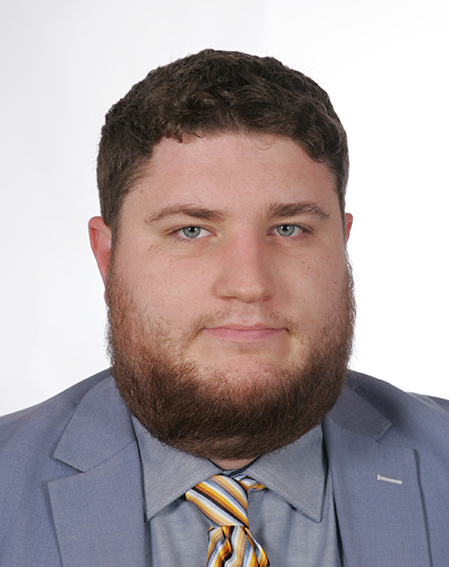
Sebastiano Ongaro
ITALY

Sebastiano Ongaro
ITALY
I am Ongaro Sebastiano, a student pursuing a master's degree in political sciences, international relations, and diplomacy. Throughout my academic journey, I have embraced an interdisciplinary approach, delving into various themes related to international relations and diplomacy. My areas of specialization include Italian foreign policy, security studies with a focus on terrorism and extremist movements, as well as the histories of the Mediterranean basin and the Balkans.
I have actively participated in conferences such as the IPSE conference on terrorism issues, the EST seminar cycle on Eastern Europe themes, and Dr. Chiodi's conferences on political-diplomatic developments in the Western Balkans.
Recently, I have developed a keen interest in space and scientific diplomacy, particularly after attending the Spring School ExpoSteam. This experience led me to explore research and techno-scientific diplomacy related to space, culminating in my participation in the scientific and space attaché conference in Padua. I also engaged in a seminar series with Dr. Dubrovina on the space dynamics of the Soviet Union and Russia, specifically concerning the Soviet approach to the space race.
Additionally, I have collaborated with local administrations to organize conferences and participate in forums focused on European space issues. I have also been an active member of the "Ars Militaris" student group, through which I have organized conferences on conflict history and international relations, particularly within the context of the Cold War.
dr. Christine Nardini
ITALY
dr. Christine Nardini
ITALY
Dr Christine Nardini is a scientist at CNR IAC. She graduated in Electronic engineering (EE) and received her PhD at the University of Bologna. She worked as PI and full professor at the Max Planck Chinese Academy of Sciences Partner Institute for Computational Biology (CAS-MPG PICB) from 2008 to 2014, followed by 6 years of hybrid academic-industrial position at the SOL group (Coordinator for Systems Biology and Head of the biotech integration) paralleled by a position of Affiliate to the Karolinska Institute until 2019.
Her main research focus is on the control of low-grade chronic inflammation, at the base of all noncommunicable diseases, using non-pharmacological approaches and rheumatoid arthritis as a model. She has been designing interdisciplinary means to elucidate this problem, applying computational methods (multiomic integration, network theory, machine learning and AI), but also organoids, animal and human clinical studies, and recently integrating with medical socio-anthropology.
She has been awarded several grants from the European (FP7, Horizon 2020) and Chinese (MoST and NSFC) funding agencies. She is a long dated (since 2009) member of the Editorial Boards of PLoS ONE and Associate Editor for BMC Bioinformatics. She acts as reviewer for national and international funding bodies (European H2020 and HE program; Italian Ministries MIUR and MISE).
She recently began training in Scientific Diplomacy and acts as vice-chair for the Scientific Diplomacy Task Force of the Marie Curie Alumni Association.
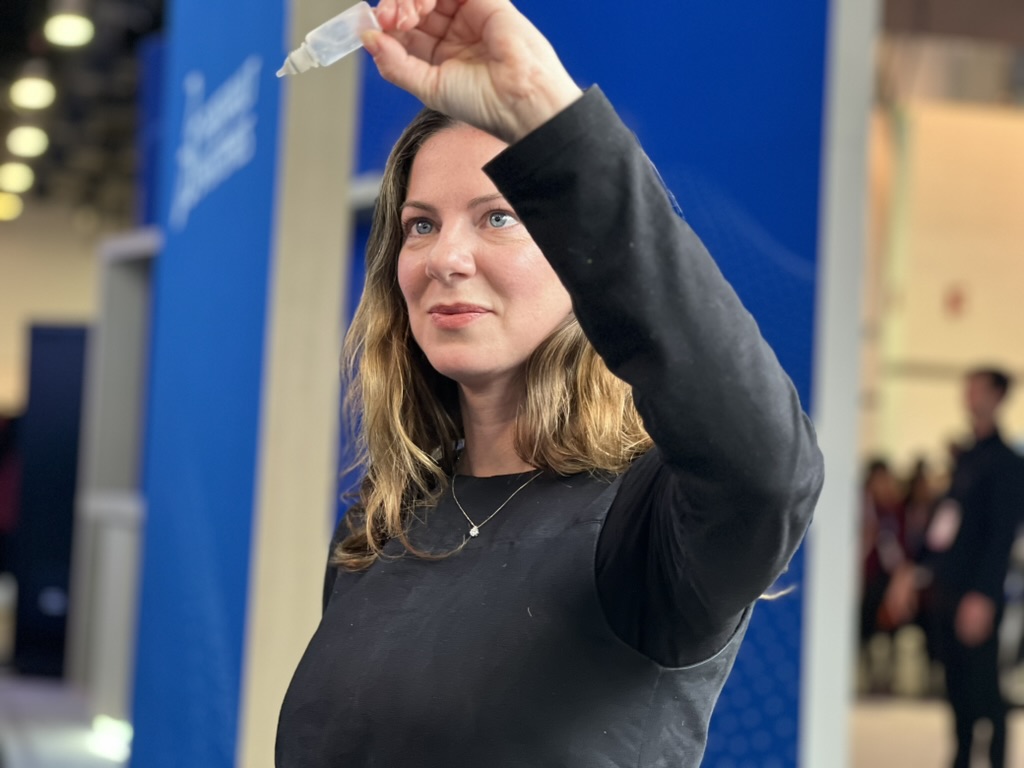
dr. Giulia Gaudenzi
ITALY

dr. Giulia Gaudenzi
ITALY
Giulia is an assistant Professor of Global Health Diagnostics and Innovation at the Karolinska Institutet, Stockholm, Sweden. Throughout her research career, she has co-led international projects aimed at advancing diagnostics within global health. Her research has been widely published in prestigious journals and supported by the Swedish Research Council, Horizon Europe, and the Swedish Medical Society.
Giulia’s research aligns with UNESCO's mission to eradicate poverty, promote sustainable development, and foster intercultural dialogue through science, innovation, education, and outreach. She serves as an Advisory Board Member for the Swedish Organization for Global Health and has been nominated as one of the Swedish Women in Global Health. Recognizing the delicate nature of her research, she pursued a Master of Medical Law and Ethics at the University of Edinburgh and underwent training in Global Health Diplomacy at the Graduate Institute of International and Development Studies (IHEID) in Geneva, to better translate research findings into real-world applications for patients and stakeholders.
In addition to her academic work, Giulia co-founded Flexpenser AB, a deep-tech start-up addressing liquid dispensing challenges and waste. Flexpenser AB has received numerous awards and endorsements from national and international organizations, with its technology validated by over 15 multinational corporations, including Fortune 200 and Fortune 50 companies.

Annachiara Medici
ITALY

Annachiara Medici
ITALY
I am Annachiara Medici, a second-year student of International Relations and Diplomacy at the University of Padua. I have always been interested in the European and international political context, so much so that I chose a master's degree program that would allow me to deepen my understanding of these topics. For this reason, I was able to participate in the United Nations simulation in New York (NHSMUN). Additionally, I had the opportunity to complete a curricular internship at the Veneto Region, specifically in the area of European and international projects, and I actively participate in the political life of my local community. Over the past year, I have become interested in the field of science diplomacy, thanks to some courses offered by my department. Through these courses, I have learned about the close connections characterizing some areas of science diplomacy, such as the space sector and microelectronics. Due to my strong interest in this topic, I decided to pursue my thesis in the field of microelectronics and globalization. I believe that science diplomacy can have a significant impact on European and international dynamics. Lastly, I consider the field of study I have always focused on to be international historical-political relations.
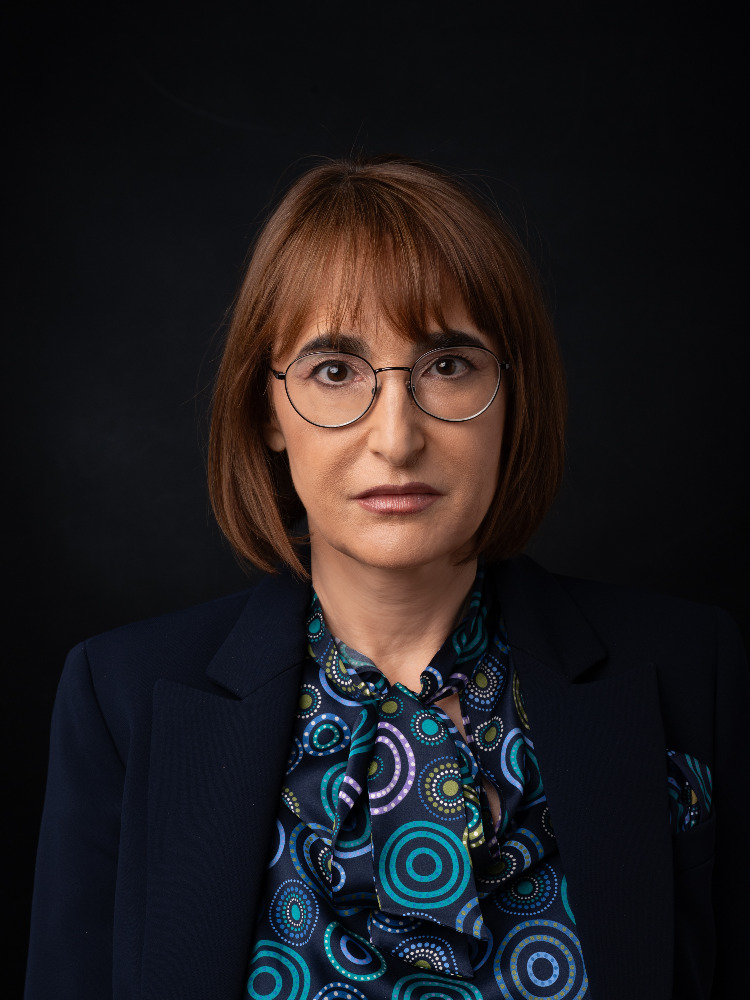
dr. Roberta Monni
ITALY

dr. Roberta Monni
ITALY
Dr. Roberta Monni
She holds a degree in Law from Sapienza University of Rome. In the early years of her career, she worked as a Lawyer at the international law firm Chiomenti e Associati. Later, after passing a public competition, she began her career as Deputy Prefect, a senior official at the Italian Ministry of the Interior. Initially, she worked in various local Prefectures (Government territorial offices) before moving to the Ministry's central offices, where she managed areas related to safety and security policy, foreign affairs, and international relations.
Driven by personal interest, she pursued further education, earning second-level master's degrees in Public Management and Public Utility Communication from LUMSA University of Rome, as well as in Geopolitics and Global Security from Sapienza University of Rome. Additionally, on her own initiative, she qualified as a European Planner by completing an EU-funded master's program.
She is an expert in emergency and crisis management. Nationally, she has developed emergency plans, coordinated working groups of scientific and institutional experts, and managed provincial-level emergencies and major events, overseeing population relief efforts and the protection of critical infrastructure and essential public services.
As a crisis manager, she has participated in international working groups, contributing both to the design of exercise scenarios and as an active player in large-scale international crisis exercises.
As part of the Atlantic Alliance's Resilience Committee, she contributed to the development of Resilience policies in the broadest sense (whole-of-government and whole-of-society approaches). Her work covered topics such as critical infrastructure security, the use of disruptive technologies, strategic communication, risks related to disinformation, and emerging issues in the space and cyber domains.
She has also focused on the security (both safety and security) of the Enlarged Mediterranean area, paying particular attention to critical infrastructure and Italy's role in the international geopolitical context. Her work in this area includes fostering scientific and business collaborations in Africa, as well as addressing migration-related challenges.
Domestically, she has designed and implemented projects aimed at integrating citizens from non-European and non-Western countries into Italian society, coordinating multidisciplinary teams for their execution. She has also promoted interreligious and intercultural dialogue, facilitating engagement through different communities.
In her personal capacity, she has collaborated with the General Innovation Office of the Italian Ministry of Defense, participating in working group focused on competition in the cognitive dimension. She contributed to the drafting of the document Cognitive Warfare: Competition in the Cognitive Dimension, Edition 2023, published on the Ministry of Defense’s website.
With a long-standing interest in scientific advancements and a passion for pursuing policies that enhance human life, social welfare, and democratic development—while respecting nature and diverse cultures—she has often led or contributed to teams composed of people from different educational and cultural backgrounds.
Her overarching goal is to ensure that scientific discoveries, analyses, and proposed solutions from experts and scientists are considered by policymakers to avoid risks or mitigate their negative effects, while upholding human dignity and fundamental democratic values.
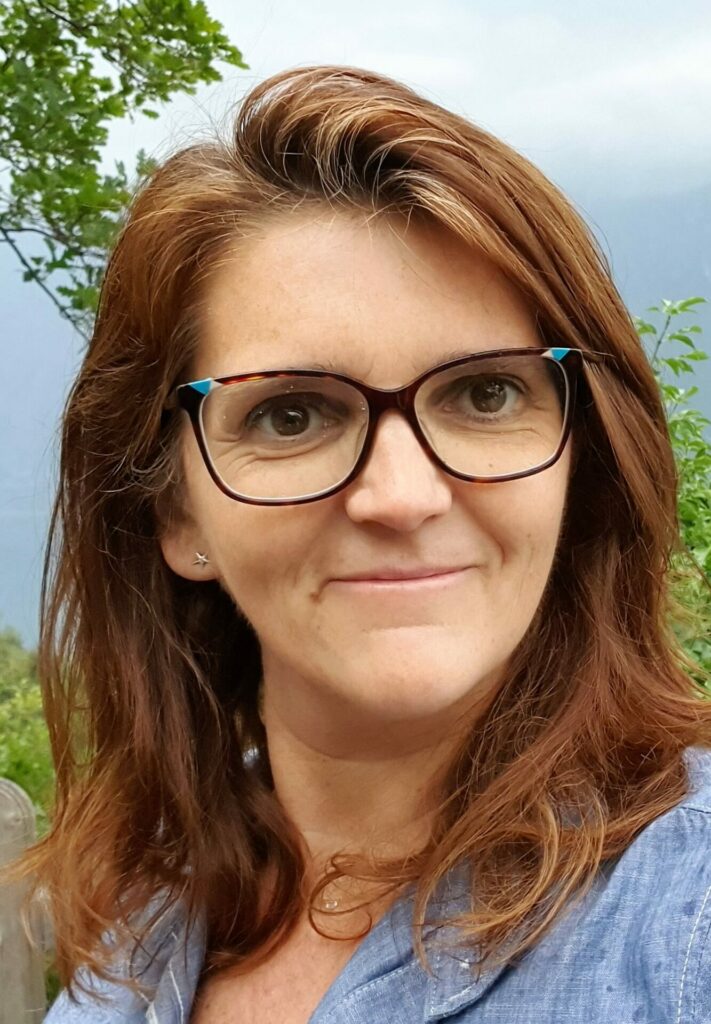
dr. Rosanna Fornasiero
ITALY

dr. Rosanna Fornasiero
ITALY
Rosanna Fornasiero is director of research at CNR (National Council of Research-Italy). Her research areas include Supply Chain Management, operations management, and technology roadmapping. She has experience as project coordinator of several European projects in H2020 and Horizon Europe. She is coordinator of the Roadmapping group of the National Cluster of Intelligent Factories where she coordinated science diplomacy initiatives between USA and Italy on Advanced manufacturing. She collaborates with industrial associations and companies on regional research. She is author of more than 60 papers, and co-editor of 3 Springer books.
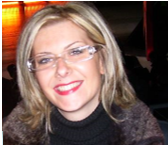
dr. Veronica Buccheri
ITALY

dr. Veronica Buccheri
ITALY
Veronica Buccheri - First technologist at the National Institute of Nuclear Physics (INFN, Italy), she has been working in the field of international relations for more than twenty years. Though not stemming from a legal background, she started gaining specific expertise in the early 2000s at the Directorate for the Internationalization of Scientific and Technological Research of the Italian Ministry of Universities and Research, first as National Contact Point in the frame of the 6th Framework Programme of the European Union, and later in the field of bilateral scientific cooperation. Since 2008 she is Italian delegate in the Finance Committee at CERN and as of July 2024 she was appointed by the CERN Council as Vice Chair of the same committee.
She also represents INFN as delegate in several Administrative and Finance Committees of large research infrastructures such as X-FEL (Hamburg), CTAO (Heidelberg/Bologna), ELI-ERIC (Czech Republic/Hungary), JINR (Dubna, Russian Federation) and advisor in the Council of the European Gravitational Observatory (Italy).
Since August 2022 she is Director of the International Relations Service at INFN providing, among other tasks, professional legal support in the drawing up, negotiation and conclusion of bilateral and multilateral agreements and MoUs of scientific collaboration between INFN and research Institutes, universities, laboratories as well as IGOs all over the world. More recently she obtained a master diploma in International Studies at the Italian Society for International Organizations of the UN Association of Italy (SIOI) by delivering a thesis in geopolitics and science diplomacy entitled “The CERN of Geneva: a laboratory for peace beyond the boundaries between Countries” and a second diploma on “Space Institutions and Policies” with a thesis focused on “The African national legislation on space agencies and the regulation of space activities of the African states”.
Signee of the Madrid Declaration on Science Diplomacy in 2018 she then participated in a networking meeting at the German Physical Society in Berlin in 2019 in the frame of the “Science Diplomacy for Addressing Global Challenges (S4D4C)” European project, to discuss the visions, achievements, challenges and principles of science diplomacy in a view of delivering a European roadmap.
In the same year she attended the international training workshop “Science meets diplomacy: a new European perspective” at the World Academy of Sciences / International Centre for Theoretical Physics (TWAS-ICTP) in Trieste with a focus on the world of diplomacy and its approach to science.

Veronika Kysil
UKRAINE

Veronika Kysil
UKRAINE
Veronika Kysil is the “Science & Society” Project Manager at Paris-Saclay University, working under the responsibility of the Vice-President of Paris-Saclay University in charge of art, culture, science, and society. As part of her role, Veronika actively engages in relations with elected officials and businesses, thereby strengthening the links between science and society.
With a scientific background in physics, Veronika combines this expertise with proven skills in digital communication, allowing her to effectively promote scientific initiatives to a wide audience. As a doctoral student in human sciences, specializing in scientific popularization, she pursues a multidisciplinary adventure characteristic of the 21st century, constantly enriching her knowledge and skills to better serve the scientific community and society in general.
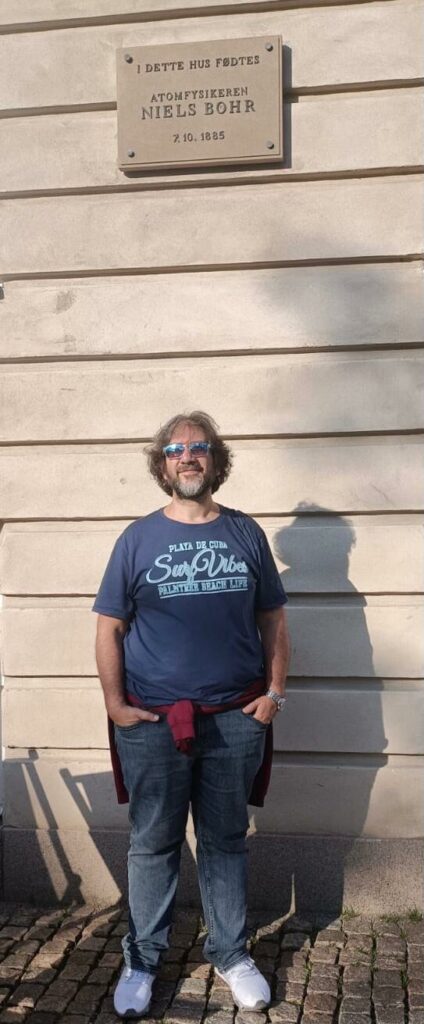
dr. Alessio Rocci
ITALY

dr. Alessio Rocci
ITALY
After graduating from the University of Padova (UNIPD) with a degree in physics, Alessio Rocci enrolled in a PhD program in physics at UNIPD. His thesis focused on the history of the earliest attempts to reconcile quantum theory with Einstein’s theory of gravity. As a historian of science, his research interests span from the history of mathematics to the history of physics and chemistry during the 20th century. In Brussels, he is a postdoctoral fellow at VUB, working on the history of the International Solvay Institutes of Physics and Chemistry (ISIPC). He’s part of a collaboration between ULB and VUB called Solvay Science Project. He started investigating ISIPC’s actions in the context of international scientific collaboration and scientific diplomacy.
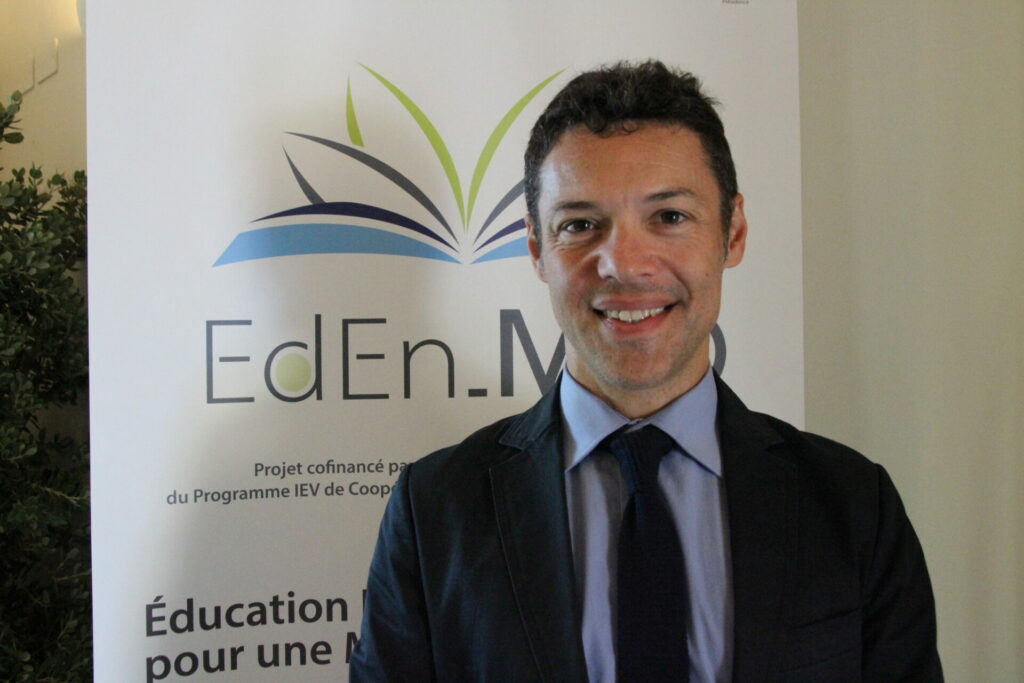
dr. Antonino ADAMO
ITALY

dr. Antonino ADAMO
ITALY
Antonino ADAMO is a Technologist at the National Research Council of Italy (CNR) where he deals since 2003 with project management, trans-border co-operation projects, research agreements with national and international partners, as well as research internationalisation and science diplomacy initiatives in the field of marine sciences.
His previous international working experiences were carried out at the United Nations Institute for Disarmament Research (UNIDIR) in Geneva and at the Organization for Security and Co-operation in Europe (OSCE) as a Short Term Observer in Bosnia and Herzegovina.
He holds a M.Sc. in International Relations at the University of Bologna (2002), Italy and a Ph.D. in Asian and African Studies at the University of Cagliari (2007), Italy.
His research areas include private security in Sub-Saharan Africa, Private Military Companies, multilateral peacekeeping in Africa, foreign powers’ competition in Sub-Saharan Africa, and Pacific Studies.

Alice Tommasi
ITALY

Alice Tommasi
ITALY
Currently PhD student in Earth Observation (IUSS Pavia). Bachelor's and Master's degree in international relations and security (University of Padua and LUISS Guido Carli). Advanced Studies course in Space Institutions and Policies (SIOI). Internship experiences at the Ministry of Foreign Affairs (MAECI), the European Space Agency (ESA), and the Militarization and Disarmament group of the Space Generation Advisory Council (SGAC)

Dr. Diego Liberati
ITALY

Dr. Diego Liberati
ITALY
prof eng Diego Liberati PhD is research Director information control and biomedical engineering within CNR @ Politecnico cdi Milano, designated Scientific Attache to our Belgrade Embassy, mentor NATO DIANA, Asoociate Editor of IEEE Trans Neural Network and Learning Systems

dr. Veronika Stoka
ITALY

dr. Veronika Stoka
ITALY

Dr. Mariaconcetta Canino
ITALY

Dr. Mariaconcetta Canino
ITALY

dr. Federica Baldassari
ITALY

dr. Federica Baldassari
ITALY

Michelangelo Beda Zantomio
ITALY
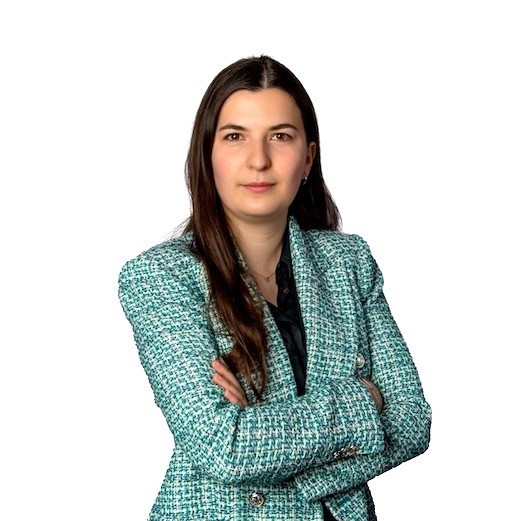
CLARA RODRIGUEZ Solé
SPAIN

CLARA RODRIGUEZ Solé
SPAIN
A dedicated professional with expertise in international relations, business management, and science diplomacy, Clara has built a career at the intersection of policy, diplomacy, and sustainability. With advanced degrees from prestigious institutions such as Sciences Po Paris and Universitat Oberta de Catalunya, Clara specializes in fostering global collaborations to address environmental and socio-economic challenges.
Currently leading Internationalization and Science Diplomacy at the Institute of Marine Sciences (ICM-CSIC), Clara collaborates with international organizations to advance sustainable ocean governance and tackle critical marine issues. Past roles include managing European projects for the Government of Catalonia and advancing diversity initiatives at the Women’s Forum.
A fluent speaker of English, French, Spanish, and Catalan, Clara R Solé combines strategic vision with a passion for sustainability. Through innovative leadership and a commitment to transformative change, Clara continues to bridge disciplines and drive solutions for global impact.
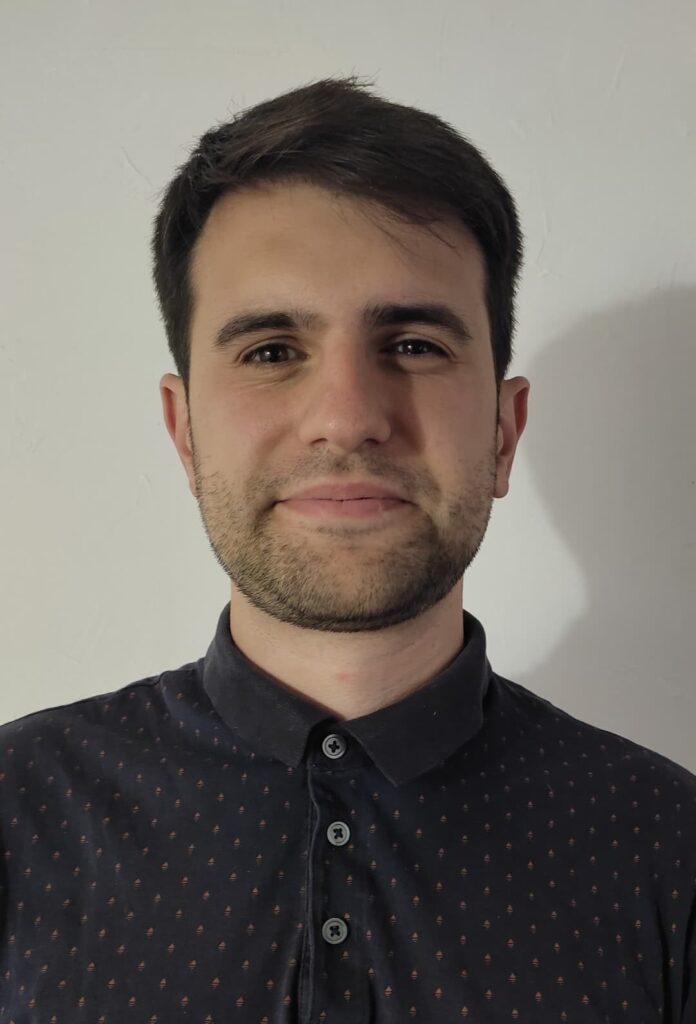
Raphaël LAVIE
FRANCE

Raphaël LAVIE
FRANCE
Raphaël Lavie teaches and pursues a PhD at Sorbonne University in Contemporary History since 2022. His research is about History of Genetics and its different issues such as economy or ethics from the 1960s to the year 2000 in the United States, the United Kingdom and in France. The main goal of this thesis is to show relationships between these different countries in this field. This research is conducted within the SIRICE (Sorbonne, Identités, relations internationales et civilisations de l’Europe) laboratory. He is associated with the History Committee of the National Institute of Health and medical research for the conduct of its research and organization of conferences related to the contemporary history of medicine.




